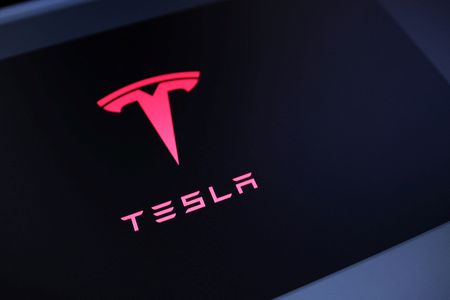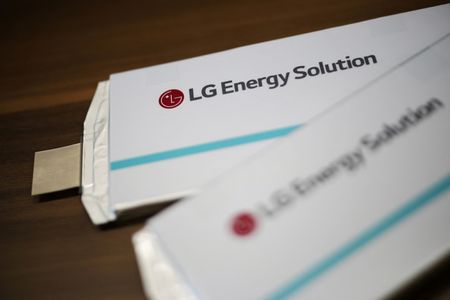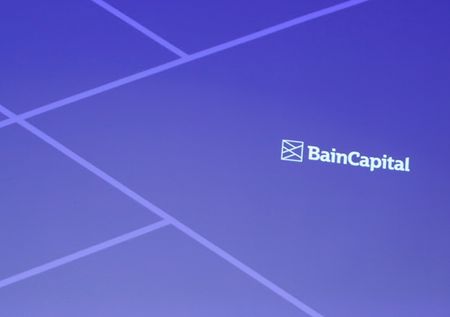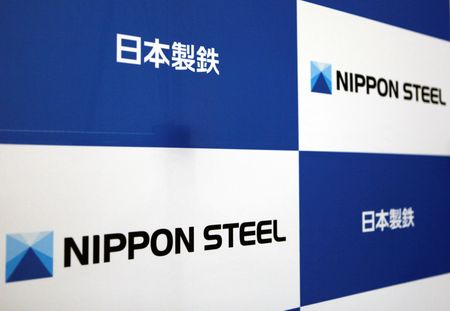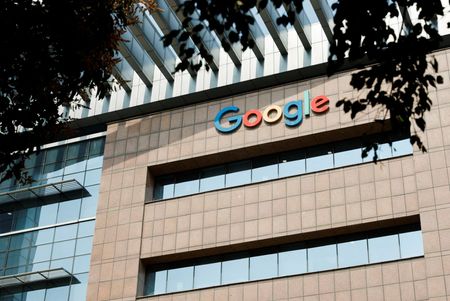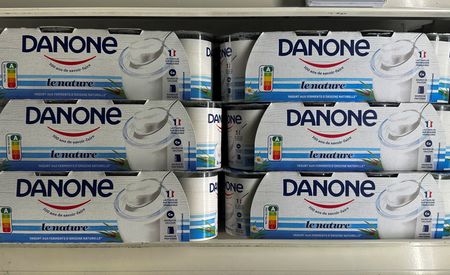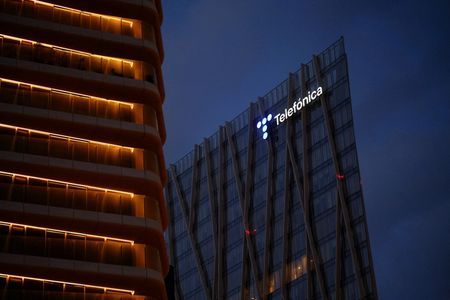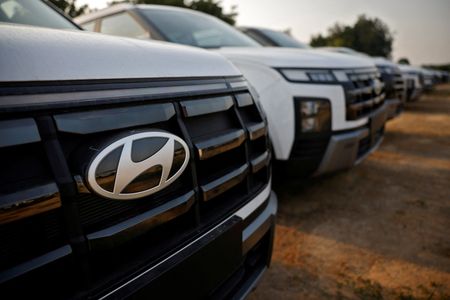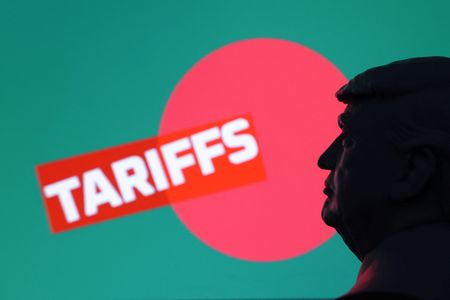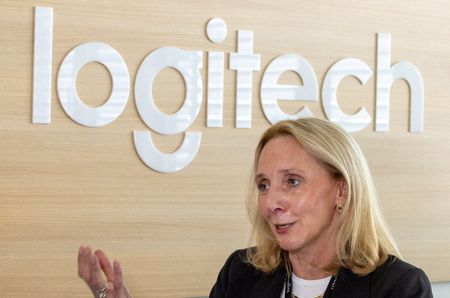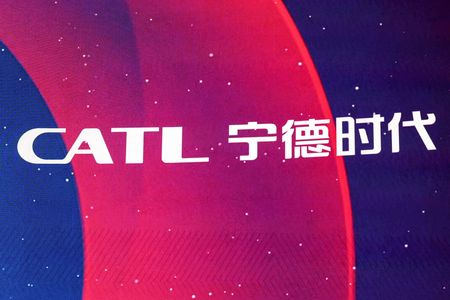By Heekyong Yang and Hyunjoo Jin
SEOUL (Reuters) -South Korea’s LG Energy Solution (LGES) has signed a $4.3 billion deal to supply Tesla with energy storage system batteries, said a person familiar with the matter, as the U.S. company looks to reduce reliance on Chinese imports due to tariffs.
The lithium iron phosphate (LFP) batteries will be supplied from LGES’s U.S. factory in Michigan, the person said on condition of anonymity because the details were not public.
LGES announced earlier on Wednesday that it had signed a $4.3 billion contract to supply LFP batteries over three years globally, without identifying the customer or saying if they would be used in vehicles or energy storage systems.
The South Korean company said last week it would try to offset sluggish electric vehicle demand by increasing sales of storage batteries thanks to a global surge in demand for power driven by data centres to train artificial intelligence.
“In accordance with our agreement, we are unable to disclose the customer’s identity due to confidentiality obligations,” LGES told Reuters. Tesla did not immediately respond to a request for comment.
Tesla Chief Financial Officer Vaibhav Taneja said in April that U.S. tariffs had an “outsized” impact on its energy business, since it sources LFP batteries from China.
“We will also be working on securing additional supply chain from non-China-based suppliers, but it will take time,” he said.
Tesla this week also announced a $16.5 billion deal to buy chips from Samsung Electronics’ factory in Texas as South Korean companies expand their U.S. presence to meet local demand.
Three South Korean cabinet-level officials met U.S. Commerce Secretary Howard Lutnick in Washington in a push to close a trade deal ahead of an August 1 deadline for 25% tariffs on U.S. imports from South Korea to kick in, Seoul said on Wednesday.
US PRODUCTION
LGES is one of the few U.S. producers of LFP batteries, a battery chemistry long dominated by Chinese rivals that have little presence in the U.S. market.
It started production of LFP batteries at its Michigan factory in May. The company said it was considering converting some electric vehicle battery production lines in the United States to cater to energy storage systems in response to slowing EV demand.
LGES said the contract would last from August 2027 to July 2030 and included an option to extend the deal period by up to seven years and to increase supply volumes depending on discussions with its customer.
“Other players, including South Korean firms like Samsung SDI and SK On, have yet to enter the U.S. LFP market, allowing LGES to enjoy a first-mover advantage,” said Cho Hyun-ryul, a senior analyst at Samsung Securities. “While rivals have announced plans, LGES remains the only one actively producing at scale.”
Tesla’s energy storage and generation business accounts for just over 10% of its revenue but it has been a bright spot for the company as it struggles with slowing car sales and upcoming cuts to U.S. government support for EVs.
“Energy is growing really well despite headwinds from tariffs and various supply chain challenges,” Tesla CEO Elon Musk said on an earnings call last week. “I think not that many people appreciate just how gigantic the scale of battery demand is.”
Tesla has said its first LFP cell manufacturing facility will be online by the end of the year, but the in-house factory in Nevada will likely account for a small portion of its demand.
(Reporting by Heekyong Yang and Hyunjoo Jin; Editing by Jamie Freed)

